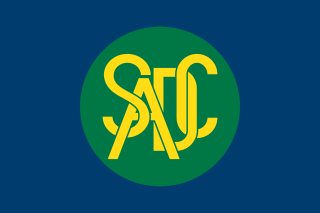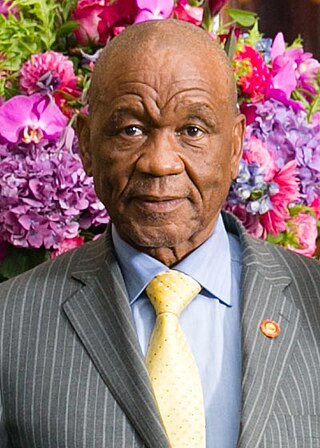
Zimbabwe, officially the Republic of Zimbabwe, is a landlocked country in Southern Africa, between the Zambezi and Limpopo Rivers, bordered by South Africa to the south, Botswana to the south-west, Zambia to the north, and Mozambique to the east. The capital and largest city is Harare. The second largest city is Bulawayo. A country of roughly 15 million people, Zimbabwe has 16 official languages, with English, Shona, and Ndebele the most common. Beginning in the 9th century, during its late Iron Age, the Bantu people built the city-state of Great Zimbabwe; the city-state became one of the major African trade centres by the 11th century, controlling the gold, ivory and copper trades with the Swahili coast, which were connected to Arab and Indian states. By the mid 15th century, the city-state had been abandoned. From there, the Kingdom of Zimbabwe was established, followed by the Rozvi and Mutapa empires.

Land reform in Zimbabwe officially began in 1980 with the signing of the Lancaster House Agreement, as an effort to more equitably distribute land between black subsistence farmers and white Zimbabweans of European ancestry, who had traditionally enjoyed superior political and economic status. The programme's stated targets were intended to alter the ethnic balance of land ownership.

Tete is the capital city of Tete Province in Mozambique. It is located on the Zambezi River, and is the site of two of the four bridges crossing the river in Mozambique. A Swahili trade center before the Portuguese colonial era, Tete continues to dominate the west-central part of the country and region, and is the largest city on the Zambezi. In the local language, Nyungwe, Tete means "reed".

Southern Africa is the southernmost region of Africa. No one definition is agreed upon, but some groupings include the United Nations geoscheme, the intergovernmental Southern African Development Community, and the physical geography definition based on the physical characteristics of the land.

The Southern African Development Community (SADC) is an inter-governmental organization headquartered in Gaborone, Botswana.

The Southern African Development Coordination Conference (SADCC), the forerunner of the Southern African Development Community (SADC), was a memorandum of understanding on common economic development signed in Lusaka, Zambia, on 1 April 1980. It is formalised as the Lusaka Declaration ratified by the nine signing states. Some of the main goals for the Member States were to be less dependent on apartheid South Africa and to introduce programmes and projects which would influence the Southern African countries and whole region.
The Zimbabwean honours system was instituted in late 1980 to replace the Rhodesian honours system. The first award that was instituted was the Independence Medal, which was awarded to those who were involved in the Zimbabwean independence commemorations in some way. The Zimbabwean honours system includes a range of orders, gallantry decorations, gallantry medals, and service medals.

Nosiviwe Noluthando Mapisa-Nqakula is a South African politician who currently serves as the Speaker of the National Assembly as of 19 August 2021. She has previously held the office of Minister of Defence and Military Veterans from June 2012 to August 2021. She was also the Minister of Home Affairs from 2004 to 2009 and Minister of Correctional Services from 2009 to 2012.

The 2008–2009 Zimbabwean political negotiations between the opposition Movement for Democratic Change, its small splinter group, the Movement for Democratic Change – Mutambara, and the ruling Zimbabwe African National Union – Patriotic Front were intended to negotiate an end to the partisan violence and human rights violations in Zimbabwe and create a framework for a power-sharing executive government between the two parties. These negotiations followed the 2008 presidential election, in which Mugabe was controversially re-elected, as well as the 2008 parliamentary election, in which the MDC won a majority in the House of Assembly.
Mike Campbell (Pvt) Ltd et al. v. Republic of Zimbabwe is a case decided by the Southern African Development Community (SADC) Tribunal. The Tribunal held that the Zimbabwean government violated the organisation's treaty by denying access to the courts and engaging in racial discrimination against white farmers whose lands had been confiscated under the land reform program in Zimbabwe.

South Africa–Zimbabwe relations have been generally cordial since the end of apartheid in South Africa, although there have been tensions due to political troubles in Zimbabwe in recent years.
Kavango–Zambezi Transfrontier Conservation Area is the second-largest nature and landscape conservation area in the world, spanning the international borders of five countries in Southern Africa. It includes a major part of the Upper Zambezi River and Okavango basins and Delta, the Caprivi Strip of Namibia, the southeastern part of Angola, southwestern Zambia, the northern wildlands of Botswana and western Zimbabwe. The centre of this area is at the confluence of the Zambezi and Chobe Rivers where the borders of Botswana, Namibia, Zambia and Zimbabwe meet. It incorporates a number of notable national parks and nature sites, including Chobe National Park, Hwange National Park, and the Victoria Falls. The region is home to a population of approximately 250,000 animals, including the largest population of African Elephants in the world.

The SADC Tribunal was a court and the highest policy institution of the Southern African Development Community (SADC). It was housed in the Turnhalle building in Windhoek, the capital of Namibia. Although established on paper since 1992, members of the Tribunal were only appointed during the SADC Summit in 2005. On 18 November 2005 the Tribunal was inaugurated and the members were sworn in by Peter Shivute, chief justice of Namibia of the Namibian Supreme Court.

The Common Market for Eastern and Southern Africa (COMESA) is a regional economic community in Africa with twenty-one member states stretching from Tunisia to Eswatini. COMESA was formed in December 1994, replacing a Preferential Trade Area which had existed since 1981. Nine of the member states formed a free trade area in 2000, with Rwanda and Burundi joining the FTA in 2004, the Comoros and Libya in 2006, Seychelles in 2009 and Tunisia and Somalia in 2018.
Benjamin Freeth, MBE is a White Zimbabwean farmer and human rights activist from the district of Chegutu in Mashonaland West Province, Zimbabwe. Together with his father-in-law, Mike Campbell, he rose to international prominence after 2008 for suing the regime of Zimbabwean President Robert Mugabe for violating rule of law and human rights in Zimbabwe. Freeth and Campbell's lawsuit against the Mugabe regime—the case of Mike Campbell (Pvt) Ltd and Others v Republic of Zimbabwe—was chronicled in the award-winning 2009 documentary film Mugabe and the White African.

Visitors to Zambia must obtain a visa from one of the Zambian diplomatic missions unless they come from one of the visa exempt countries or countries whose citizens are eligible for visa on arrival. Visitors may alternatively obtain an electronic visa. All visitors must hold a passport valid for at least 6 months. As of November 2014 Zambia and Zimbabwe also offer a universal visa.

Visitors to Zimbabwe must obtain a visa from one of the Zimbabwean diplomatic missions or online unless they come from one of the visa exempt countries or are eligible for visa on arrival. As of November 2014 Zimbabwe and Zambia also offer a universal tourist visa.
The Former Liberation Movements of Southern Africa (FLMSA) is an association of seven socialist political parties which were involved in the African nationalist movements against colonialism and white-minority rule in Southern Africa. It has its roots in the Frontline States, a loose coalition of African countries from the 1960s to the early 1990s committed to ending apartheid and white minority rule in South Africa and Rhodesia. Its original members are the African National Congress, Chama Cha Mapinduzi (Tanzania), FRELIMO (Mozambique), the MPLA (Angola), SWAPO (Namibia), and ZANU–PF (Zimbabwe). In 2019, the Botswana Democratic Party, the ruling party of Botswana, joined the FLMSA.

On 30 August 2014, Lesotho's Prime Minister Tom Thabane alleged that a coup d'état had been launched against him. This followed a previous allegation which caused him to suspend parliament over possible extra-constitutional manoeuvres. It also followed pressure from South Africa to maintain the democratic process. The next day, Deputy Prime Minister Mothetjoa Metsing assumed responsibility for running the government. An early election was held in February 2015 as a result of South African-led Southern African Development Community (SADC) mediation, giving power to the opposition.
Tourism in Zambia relates to tourism in the African nation Zambia. The tourism industry is a major and growing industry in Zambia. Zambia has more than 2500 lions along with several National parks, waterfalls, lakes, rivers, and historic monuments. Zambia has been involved in several agreements on tourism with nations like Uganda and Kenya. Uganda Ministry of Tourism and Arts said Zambia is a model in tourism in Africa. Zambia Tourism Agency (ZTA) has partnered with the Government through the Ministry of Tourism and private sector to enhance the marketing aspect in the tourism industry.



















